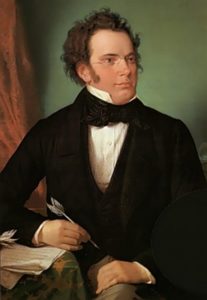
My exploration of great music, both sacred and secular, has been incredibly exciting — a beautiful new world of sounds, ideas and emotions that grows wider and deeper by the day.
If you are interested in learning more about great music, here are some tools I’ve discovered that may help you — Please add suggestions of your own in comments!
Great Music — 4 Appreciation Aids
- Book: How to Listen to Great Music, by Robert Greenberg. I’m about 3/4 through the book and it is fantastic. Greenberg is a composer and teacher, and he has a terrific knack for explaining technical musical concepts in everyday language, and also for presenting a compact historical overview of important composers and musical development in general. He’s also got a great sense of humor: it’s a fun read and full of information that helps you better understand and appreciate what you’re listening to.
- Website: Requiem Survey. I mentioned this site in my last post about Requiem Mass music. The site catalogs more than 5,200 Requiems and more than 3,200 composers. Even if you’re not interested in this type of music specifically, the site’s historical and biographical notes help you understand the context of a given composer’s other work.
- Website: Presto Classical. It’s difficult to search composers and compositions in iTunes because it’s often the orchestra or conductor that identifies the song or album. With Presto Classical, you can enter a composer or composition and see all available recordings. You can then listen to excerpts and/or download from the site. So for example, I’ve really enjoyed sacred music written by Jan Dismas Zelenka, and wondered about recordings of his secular works. I searched for “Zelenka orchestral” and got this. I then drilled down to this. After listening to a few excerpts, I identified it as something I’d like to listen to at length. In addition, Presto Classical provides fuller descriptions of the composition (such as opus number, catalog number) that are often lacking in iTunes.
- Website: Music Theory. What I’m finding really handy here is the site’s quick summary of Italian music terms. If you’re listening to, say, Michael Haydn’s Symphony No. 26 in E-Flat Major and notice the second movement is labeled “Adagietto affettuoso,” you may wonder as I did, what does that mean? This list explains it: the movement is rather slow, and played tenderly. Terms like these crop up everywhere once you start paying more attention to what you’re listening to.
Once again, if you know of other aids for appreciating great music, please share.
Great Listening — 4 Suggestions
- Joseph Haydn, Symphony No. 95 in C Minor. Like Mozart, Beethoven and J.S. Bach, Joseph Haydn seems to have been incapable of writing a bad piece of music. One hundred and four of his symphonies have survived, and this is probably my favorite among the 10 or so I’ve listened to. Haydn was the master of the Classical period symphony; if you’d like to explore his work in this area, here’s a humorously written but highly useful article by a guy who listened to and ranked all 104 of J. Haydn’s symphonies.
- Claudio Monteverdi, L’Orfeo. I got the idea to listen to this from Robert Greenberg’s book. L’Orfeo was composed in 1607, and is the oldest opera still performed regularly. I am not a big opera fan at all, but Greenberg’s description aroused my curiosity, and I liked it a whole lot more than I thought I would. The melodies are exceptionally beautiful, and the blend of Baroque and Renaissance styles give the work a sound and feel quite different from what I think of as opera.
- Johann Sebastian Bach, Mass in B-Minor, BWV 232, is one of the most beautiful compositions I’ve ever heard. The first movement, Kyrie Eleison (Lord, have mercy), running about 11 minutes, is a masterpiece of precision, beauty and complexity. Horrible that I should go so many years without hearing this, as well as so much more of Bach’s incredible work.
- Franz Schubert, Mass No 6 in E-Flat Major, D 950, is dramatic, emphatic, elevating, melodic and truly Beethoven-like in its intensity — not surprising since Schubert and Beethoven lived in Vienna at the same time and Schubert was influenced by him significantly. Here’s a fascinating analysis of Beethoven and Schubert’s musical relationship.
